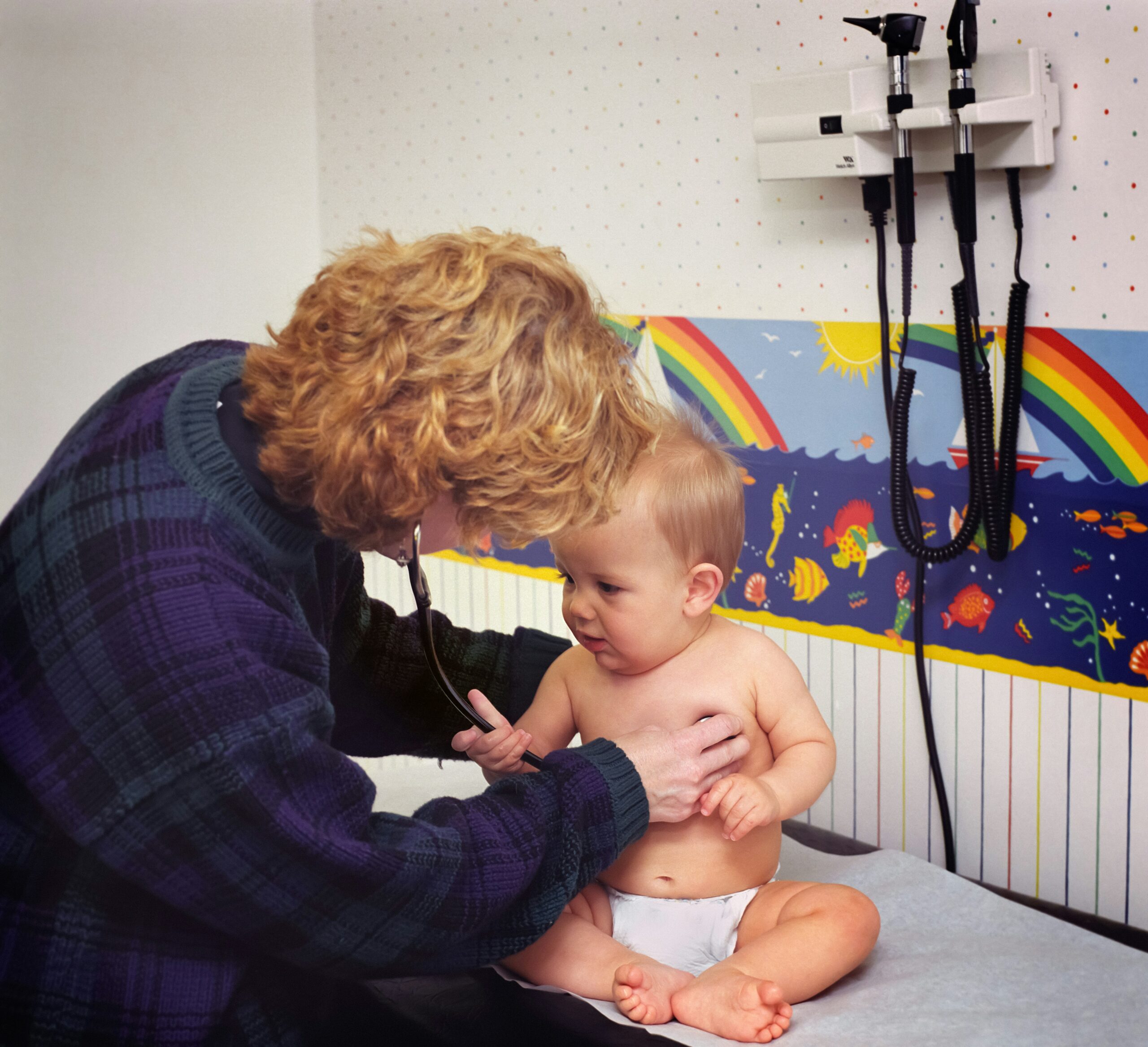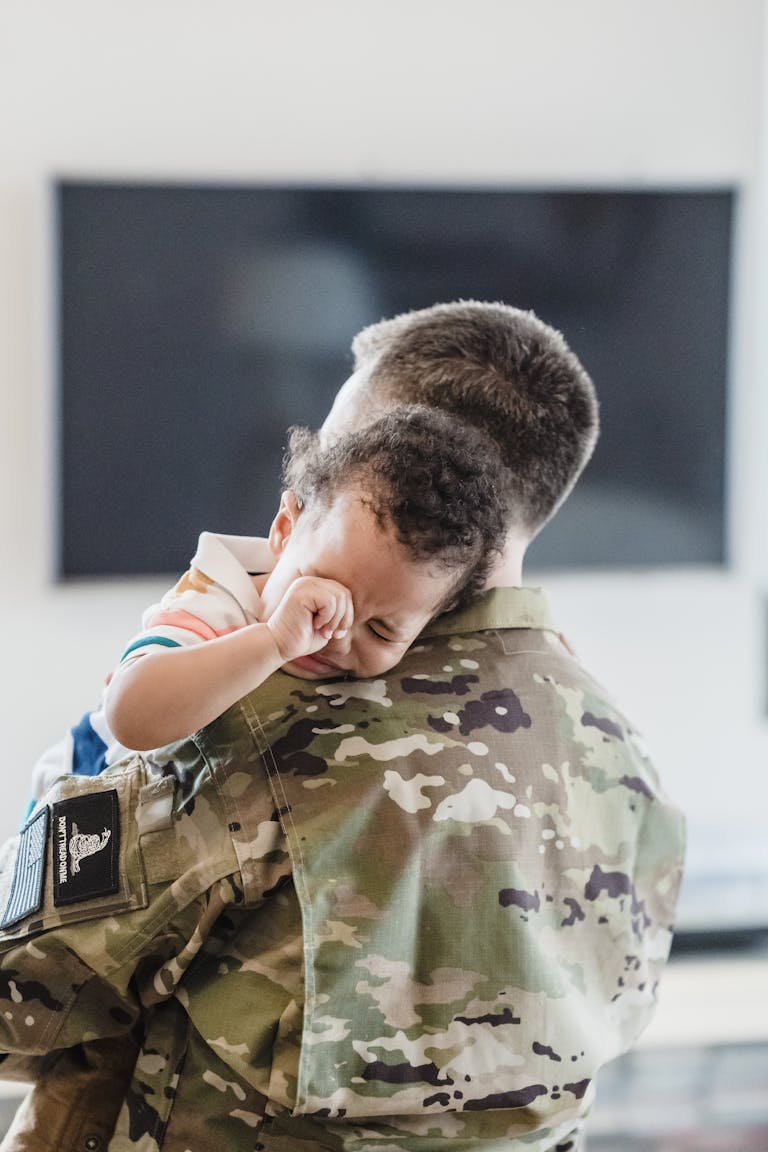A child wakes up with a stubborn cough—a puzzle of symptoms, uncertainty, and the familiar undercurrent of parental anxiety sets in. Is this just a passing irritation or the tip of something more concerning? Behind these everyday moments sits an indispensable figure: the pediatrician, equipped with clinical vigilance and a trove of child-specific expertise. Parents, you juggle endless daily decisions—the pediatrician stands by, ready to decode health signals, support wellbeing, and offer clear, science-backed advice. Understandably, decisions feel daunting: When is it time to reach out? Is this milestone on track? What, really, defines top-quality pediatric care? Let’s lay it out: what a pediatrician does, why their training is distinct, and how their approach steers children safely from birth through adolescence.
What Is a Pediatrician? Medical Expertise Tailored to Childhood
When you hear pediatrician, think more than “doctor for kids.” Picture a physician trained exclusively in child and adolescent medicine, observing neurodevelopment, growth, emotional wellbeing, and the subtle variations that make every child unique. Where an adult’s symptom might be obvious, a child’s sign can be elusive—a pediatrician’s trained gaze is tuned precisely for this nuance. Interested in detailed child growth metrics or developmental milestones? The pediatrician tracks it with clinical rigor, not just against general averages but with respect for your child’s personal trajectory.
What lies under the umbrella of a pediatrician’s expertise? Diagnostics (from ear infections to complex congenital issues), immunization schedules (timed for maximum protection), acute and chronic disease management, nutrition counseling, guidance on sleep patterns, preventive screenings, and yes—helping parents interpret every odd rash or unexpected behavior. Beyond their stethoscope, they act as translators of pediatric science for families, always conscious of the emotional load carried by each parent.
Why Choose a Pediatrician? Prevention, Precision, and Partnership
Parents frequently wonder: Do we need a specialist, or will a general practitioner suffice? Here’s the nuance—a pediatrician’s training dives deep into the developmental, behavioral, and physiological facets unique to children. Vaccination recommendations, for instance, evolve with evolving strains and updated data; your pediatrician knows the shifting landscape and personalizes advice. Growth charts? These are more than lines and percentiles; subtle changes may signal anything from metabolic disorders to psychosocial effects. A pediatrician detects what an untrained eye might brush off as “just a phase.”
If your child experiences feeding difficulties, persistent fever, changes in development or mood, or repeated infections, a pediatrician provides targeted diagnosis and a roadmap for treatment—often reserving more invasive or disruptive interventions for truly necessary cases. Their reach extends to organizing care: whether referring swiftly to a pediatric subspecialist (for example, a pediatric cardiologist for heart murmurs or a pediatric neurologist for seizures), or integrating services across therapists, nutritionists, and mental health professionals.
Pediatrician vs. Family Physician: Distinctions That Matter
Both pediatricians and family physicians serve young patients, but there’s a notable difference in focus. Pediatricians undertake a dedicated pediatric residency after medical school, immersed for years in topics exclusive to developing bodies and minds. This amounts to direct experience with rare childhood illnesses, vaccine-preventable diseases, growth disorders, congenital anomalies, and understanding how drugs and therapies interact with a child’s rapidly changing physiology.
Family physicians, while often the first point of contact, usually refer when situations move beyond routine, or symptoms become persistent, complex, or developmentally ambiguous. Both collaborate, maintaining a shared medical record and ensuring each child’s care trajectory remains clear and evidence-based.
Key Attributes of an Effective Pediatrician
What if your child’s care wasn’t just about science, but also trust and empathy? Beyond their medical skills, a pediatrician brings essential qualities—active listening, patient communication tailored for both the anxious parent and the expressive (or sometimes silent) child, and a steadying hand during moments of uncertainty.
Effective pediatricians know how to decode symptoms, translate scientific language into practical actions for home, and support parental choices without judgment. They educate on the importance of preventive care, explain the timing of childhood vaccines, support breastfeeding, and encourage a healthy approach to technology, discipline, and lifestyle choices. They become familiar with your family’s rhythm, taking into account social, emotional, and environmental factors.
Prevention: Central to the Pediatrician’s Mission
Is a pediatrician only for when things go wrong? Hardly. The bulk of their work involves anticipating problems before they start. Nutritional guidance is paired with monitoring for early developmental delays or speech and motor red flags. Screening checks are tailored for age and risk, including hearing and vision, with steps for early intervention if needed.
Guidance doesn’t stop at physiology. Parents regularly seek advice on sleep practices, injury prevention, and creating routines to build healthy childhood habits—a pediatrician answers not just with generalities, but with adaptable strategies for your specific situation.
The Rigorous Road to Becoming a Pediatrician
Training is extensive: after medical school, aspiring pediatricians compete for specialized residencies (involving hands-on rotations in newborn nurseries, pediatric emergency units, adolescent clinics, and more), followed by board exams. Some choose to deepen their expertise through fellowships in neonatology, pediatric endocrinology, or other focused fields. Many also participate in clinical research, develop public health guidelines, or advocate for children’s rights, lending their voice to broader health issues impacting communities.
These years of clinical training and ongoing education mean that when a puzzling symptom arises, your pediatrician draws on both up-to-date science and real-world experience—an invaluable combination.
Where Pediatricians Practice: Accessibility Reimagined
Imagine the range: from solo private offices devoted to long-term relationships, to the fast-paced environment of children’s hospitals. Some pediatricians are fixtures in neonatal intensive care units, while others dedicate themselves to public health clinics aimed at expanding access to care. Still more are part of multidisciplinary teams handling rare diseases, complex chronic conditions, or behavioral health.
And then, there’s telemedicine—a growing sphere. Need advice after-hours or live far from the nearest clinic? Your pediatrician may offer video consultations, triaging mild complaints, monitoring chronic illnesses, and offering guidance without the extra stress of travel. This flexibility means problems are addressed promptly—sometimes even preventing unnecessary emergency visits.
Primary Roles of the Pediatrician: Monitoring, Screening, Holistic Care
Let’s look at the calendar: routine visits after birth, then every few months as your baby grows, stretching out as school begins—all mapped in your child’s personal health record. Each appointment, whether routine or prompted by worry, involves targeted growth checks, neurological and behavioral screenings, developmental assessments, and immunizations precisely matched to your child’s needs.
A pediatrician isn’t simply checking boxes; they track emerging patterns, respond to parental concerns (trouble with sleep? recurring stomach aches? behavioral changes?), and intervene early if needed. Concerns about nutrition, weight changes, or behavioral challenges are given thoughtful exploration, never rushed, and always grounded in medical evidence.
Safety nets exist too: rapid intervention for acute illnesses (from asthma to appendicitis), collaborative management for rare disorders, and emotional support for families when anxiety or grief surfaces.
Psychological and Emotional Wellbeing: More Than Physical Health
A child’s wellbeing includes more than the body. Pediatricians recognize emotional distress, behavioral shifts, or relational tensions, stepping in to offer counseling or coordinate care with mental health specialists. When developmental or psychiatric disorders (like autism spectrum disorder, anxiety, or depression) surface, they foster early referrals and maintain regular, sensitive follow-up to adjust support over time.
When to Consult a Pediatrician? React, But Don’t Panic
Rhythms of care are structured, but flexibility rules. Key moments: post-birth check-ups, early infancy growth monitoring, vaccine appointments, and as issues arise—persistent fever, unusual lethargy, sudden changes in appetite or behavior, or injuries. Trust your instinct; the pediatrician values your perspective as a parent and will work to both reassure and act when needed.
Choosing Your Pediatrician: Practical Considerations
Selection often blends science and instinct. Parents gravitate to pediatricians noted for thoroughness, clear communication, and responsiveness—attributes that build the trust necessary for open dialogue. Consider availability (some offer extended hours or telemedicine), approach to shared decision-making, and compatibility with your child’s temperament. Word-of-mouth and reviews help, but the ability to create a partnership focused on your family’s priorities matters most.
Fees, Insurance, and Equitable Access
Fees are usually regulated, and insurance reimbursement softens the direct financial impact for most families. For those with limited means or complex needs, community health centers and public clinics offer care without barriers—a priority for pediatrician networks. Increasingly, telehealth is reimbursed, broadening access, especially for routine questions or follow-up.
The Pediatrician as Partner: Building Enduring Trust
Over time, the connection between family and pediatrician grows. Questions—large or small—are always welcomed; information is delivered with clarity instead of judgment. The personal health record serves as the thread linking every visit, test, and referral, ensuring subsequent professionals have a clear map of your child’s medical journey.
Pediatricians rarely work in isolation. Their professional web extends to speech therapists, physical therapists, mental health professionals, schools, and specialist physicians, building tailored care plans when needed.
Pediatric Subspecialties, Modern Innovations, and Ongoing Challenges
The world of pediatrics is constantly shifting. Subspecialists—whether in pediatric pulmonology managing asthma or pediatric hematology addressing blood disorders—offer highly focused care while collaborating broadly. The landscape now includes digital health tools, online education resources, and, for some, responsible use of complementary approaches (always grounded in evidence-based medicine).
Mental health support is increasingly central, with pediatricians monitoring for early signs of emotional difficulties or developmental disorders and ensuring the right channeling toward psychological support.
However, the field faces challenges: regional shortages of pediatricians, the rising tide of childhood obesity, allergies, developmental and behavioral disorders, and elevated parental expectations regarding communication and preventative advice. Pediatricians adapt through ongoing training, participation in public health initiatives, and engagement with modern digital platforms to offer resources where families need them most.
Key Takeaways
- The pediatrician is a highly trained partner who follows your child through every stage, blending medical precision with thoughtful advice and support.
- Their expertise encompasses diagnosis, prevention, screening, and personalized strategies for nutrition, sleep, development, and mental health.
- Accessibility is enhanced through diverse practice settings—including hospitals, private clinics, community centers, and telemedicine platforms—ensuring every family finds support, no matter their circumstances.
- Early intervention, empathy, and collaboration across specialties lie at the heart of pediatric care, helping to secure the healthiest possible trajectory for your child.
- Regulated fees and insurance coverage reinforce the principle of equitable care, while public health structures and digital support remove barriers for all.
Looking for reliable guidance, child health questionnaires, and actionable tips? Download the Heloa app for personalized pediatric advice and free health tools—your family’s trusted digital companion on the journey through childhood and adolescence.
Questions Parents Ask
What age should my child stop seeing a pediatrician?
Most children can continue seeing their pediatrician until around 18 years old; however, some pediatric practices may follow patients slightly beyond that age, especially to provide continuity during key transitions. If your teen is comfortable with their pediatrician and there are ongoing health needs, staying a little longer is often possible. When the time is right, your pediatrician will help make the transition to an adult care provider as smooth and reassuring as possible, adapting to your child’s readiness and ensuring they feel supported.
What is the difference between a pediatrician and a pediatric specialist?
A pediatrician looks after most routine health needs, growth, and general illnesses for children and teenagers. However, if your child faces a more complex or specific health concern (such as heart problems, diabetes, or neurological conditions), a pediatrician may involve a pediatric specialist. These professionals have advanced training in a focused area of pediatric medicine. Your pediatrician and the specialist work together, ensuring your child receives the right expertise while keeping your family informed and cared for every step of the way.
Can a pediatrician answer questions about my child’s behavior and emotions?
Absolutely. Pediatricians are trained to support not only physical health but also emotional and behavioral wellbeing. If you notice changes in your child’s mood, sleep, eating, or social interactions, or have worries about anxiety, attention, or school difficulties, your pediatrician is a caring first point of contact. You can safely bring up any emotional or behavioral concerns—your pediatrician listens with empathy and, if needed, can guide you toward additional resources or specialists. There’s no judgment, only support for your family’s unique situation.









